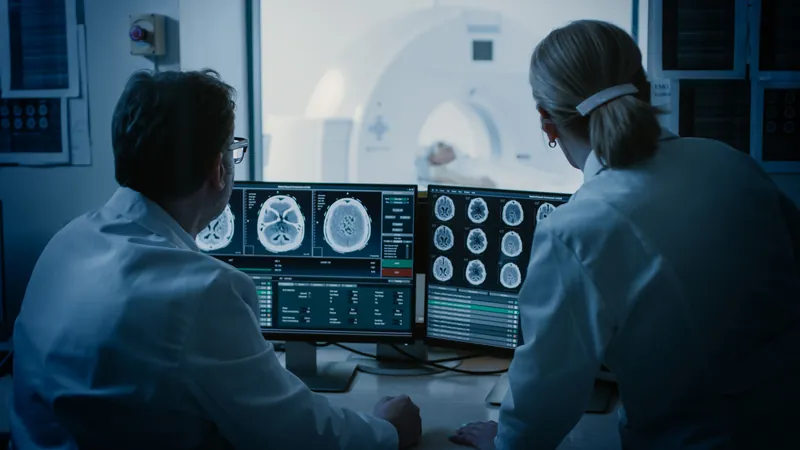
Shocking Link: Preconception CT Scans May Raise Miscarriage and Birth Defect Risks!
2025-09-13
Author: Wei Ling
CT Scans Before Conception: A Hidden Danger?
A groundbreaking study featured in the *Annals of Internal Medicine* has unveiled disturbing correlations between preconception computed tomography (CT) scans and a higher risk of both spontaneous pregnancy loss and congenital anomalies in newborns.
While CT imaging plays a crucial role in diagnosing diseases, the surge in its use over the past 30 years raises alarms due to its association with increased exposure to ionizing radiation. Researchers emphasize the potential vulnerability of ovarian follicles, which undergo a lengthy dormancy and maturation process.
Uncovering the Impact of CT Exposure
The Canadian study analyzed data from a vast cohort of pregnant women aged 16 to 45 in Ontario, spanning nearly three decades, from April 1, 1992, to March 31, 2023. By pinpointing the timing and frequency of CT scans conducted prior to conception, the study aimed to evaluate their potential impact on pregnancy outcomes.
In total, over 5 million women were included in the final analysis. Of these, approximately 13.4% had undergone at least one CT scan at a median of 50 months before conception. This group exhibited notably higher rates of chronic health conditions, which could complicate pregnancy.
The Alarming Statistics
The results are concerning: spontaneous pregnancy loss occurred in 10.4% of pregnancies studied, with a breakdown of 9.1% classified as miscarriage, 0.92% as ectopic pregnancy, and 0.39% as stillbirth. An eye-opening trend emerged: women with three or more CT scans had a staggering 142 pregnancy losses per 1,000 pregnancies, compared to 101 losses among those with no CT scans.
For every additional CT scan prior to conception, the adjusted hazard ratio for miscarriage climbed too—1.08 for one scan, 1.14 for two, and 1.19 for three or more. Even restricting scans to specific body regions like the pelvis or abdomen revealed higher risks, while scans limited to the head showed a slight decrease in rates.
Risks of Congenital Anomalies Skyrocket!
The study didn’t just link CT scans to increased miscarriage rates; it also reported a concerning rise in congenital anomalies. For infants born to mothers with prior scans, the rates soared to 61, 84, 96, and 105 anomalies per 1,000 live births for women with 0, 1, 2, and 3 or more scans respectively.
Investigators found that the adjusted hazard ratios for congenital anomalies also increased with more scans—1.06 for one scan, 1.11 for two, and 1.15 for three or more.
A Call for Caution
The findings send a powerful message: young women planning for pregnancy should consider alternative imaging methods to CT scans whenever possible. The potential risks associated with ionizing radiation exposure prior to conception could have serious implications for pregnancy outcomes.
As this research highlights the need for more awareness and caution regarding preconception health, it opens doors for further investigation into safer imaging alternatives.


 Brasil (PT)
Brasil (PT)
 Canada (EN)
Canada (EN)
 Chile (ES)
Chile (ES)
 Česko (CS)
Česko (CS)
 대한민국 (KO)
대한민국 (KO)
 España (ES)
España (ES)
 France (FR)
France (FR)
 Hong Kong (EN)
Hong Kong (EN)
 Italia (IT)
Italia (IT)
 日本 (JA)
日本 (JA)
 Magyarország (HU)
Magyarország (HU)
 Norge (NO)
Norge (NO)
 Polska (PL)
Polska (PL)
 Schweiz (DE)
Schweiz (DE)
 Singapore (EN)
Singapore (EN)
 Sverige (SV)
Sverige (SV)
 Suomi (FI)
Suomi (FI)
 Türkiye (TR)
Türkiye (TR)
 الإمارات العربية المتحدة (AR)
الإمارات العربية المتحدة (AR)